Forum of Digitalization in Shipping Services, Logistics, Terminal Operations
September 2023
On September 22, 2023, the Digital Forum was held in the spacious multi-function hall on the second floor of the Furama Nanshan Garden Hotel. The forum aimed to delve deeply into the impact of digital technology on reshaping these crucial fields and to outline the future blueprint for the shipping and logistics industry. The forum was hosted by Managing Director Oceanfavor Development Group, Mr. Bi Yuping and CEO of Oceanfavor Ganglian Information Technology, Mr. Jin Baoshan. The forum gathered exports and executives from the shipping services, logistics and terminal operations both domestically and internationally. Attendees shared innovative cases and the best practices of digitalization in shipping services, logistics and terminal operations, also discussed the challenges and opportunities that digitalization presents to these industries.

Managing Director of Norstar Ship Management Pte,Ltd. Mr. Lars Grunitz delivered a speech on the he Importance of Crew Wellness and a Data-Driven Culture. The health condition of crew is directly related to the safety and efficiency of vessel operations. Therefore, regular physical examinations and psychological support are crucial to ensure that crew in good condition during long voyages. Furthermore, a data-driven culture makes vessel operations more precise and efficient. By collecting and analyzing data, shipping companies can gain a better understanding of working patterns, identifying potential risks and taking preventive measures. This is not only contributes to improved safety but also reduces costs and enhances productivity.
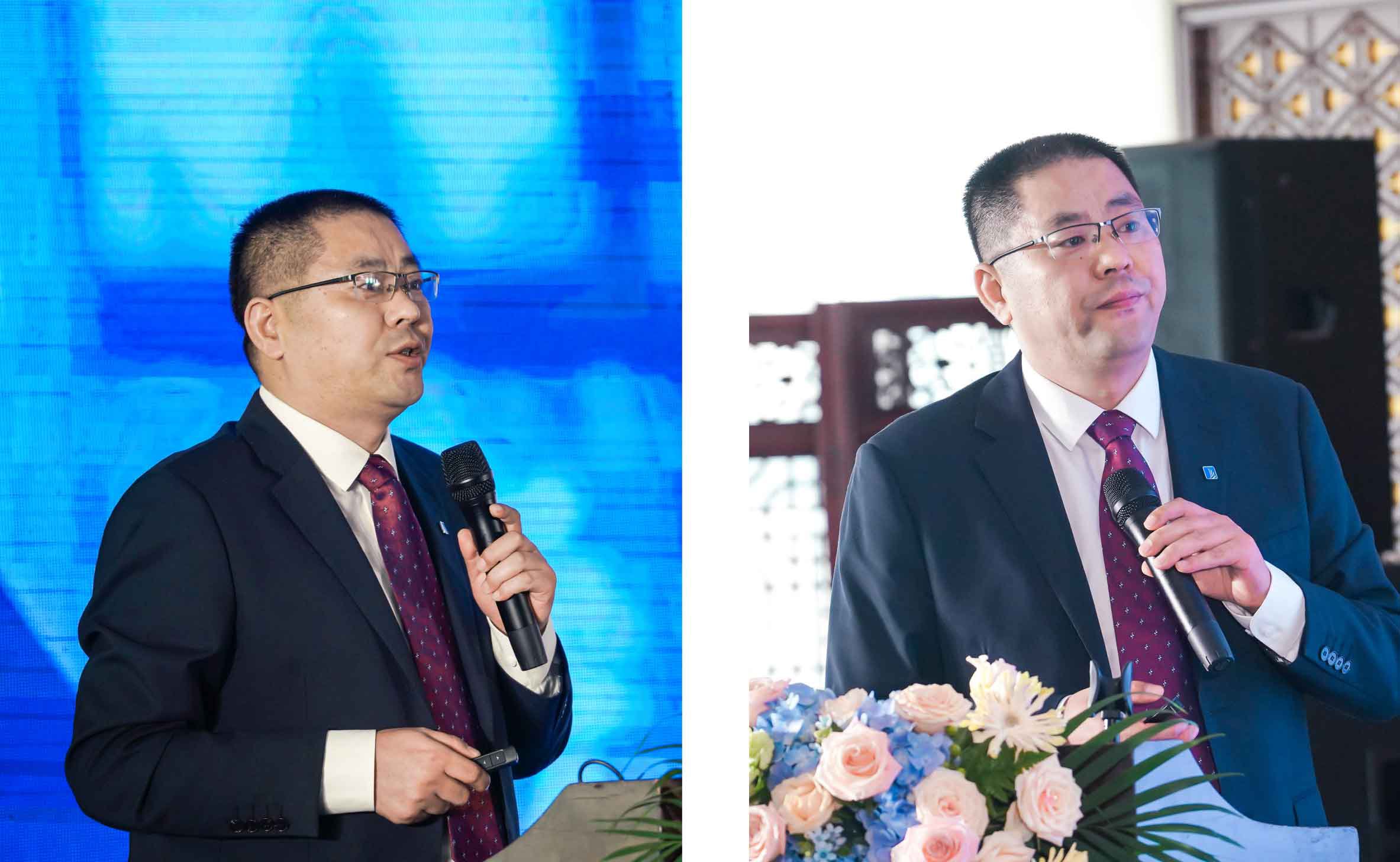
General Manager of Oceanfavor Port Management, Mr. Guo Gang shared his thoughts and practices on the digital transformation of Terminal operation services with us. In the terminal operation industry, growth has slowed down, but demand remains robust, with higher expectations for quality and efficiency. Private port operation service companies are facing issues such as loose management, a lack of efficient collaboration tools, insufficient systematized risk control and unstable operations. In order to addressing these pain points, Oceanfavor Terminal Operation sector has proactively initiated its digital transformation and collaborated with Oceanfavor Ganglian Information Technology (referred to as HG) to establish a digital port operation management platform. Mr. Guo Gang provided explanations for three modules - risk identification, owner assessment and project management. In the future, the port operation management platform will be built on a foundation of underlying technology platforms. Externally, it will serve as a comprehensive port service platform and customer service center, providing high-quality services to upstream and downstream enterprises in the industry. Internally, it will integrate industry resource advantages through the solution center and port expert system, enable port operation services.

Mrs. Martaxelle Erussard from MasOceans introduced MasOceans’ perspective on digitalization and technological as well as its impact on the maritime industry. MasOceans recognized the value of technology, especially in enhancing efficiency and improving business processes. However, technology can cause problems and even slow down the ability to problem solve, especially in interacting and communicating with people. Therefore, MasOceans firmly believe that will be rapid adoption and use of technology and then a swing back towards including more ‘human’ touches and influences along the way, then achieve more effective business operations. MasOceans looks forward to the digital transformation of the maritime industry in the future, finding a balance between technology and people, to provide better customer service and higher competitiveness.
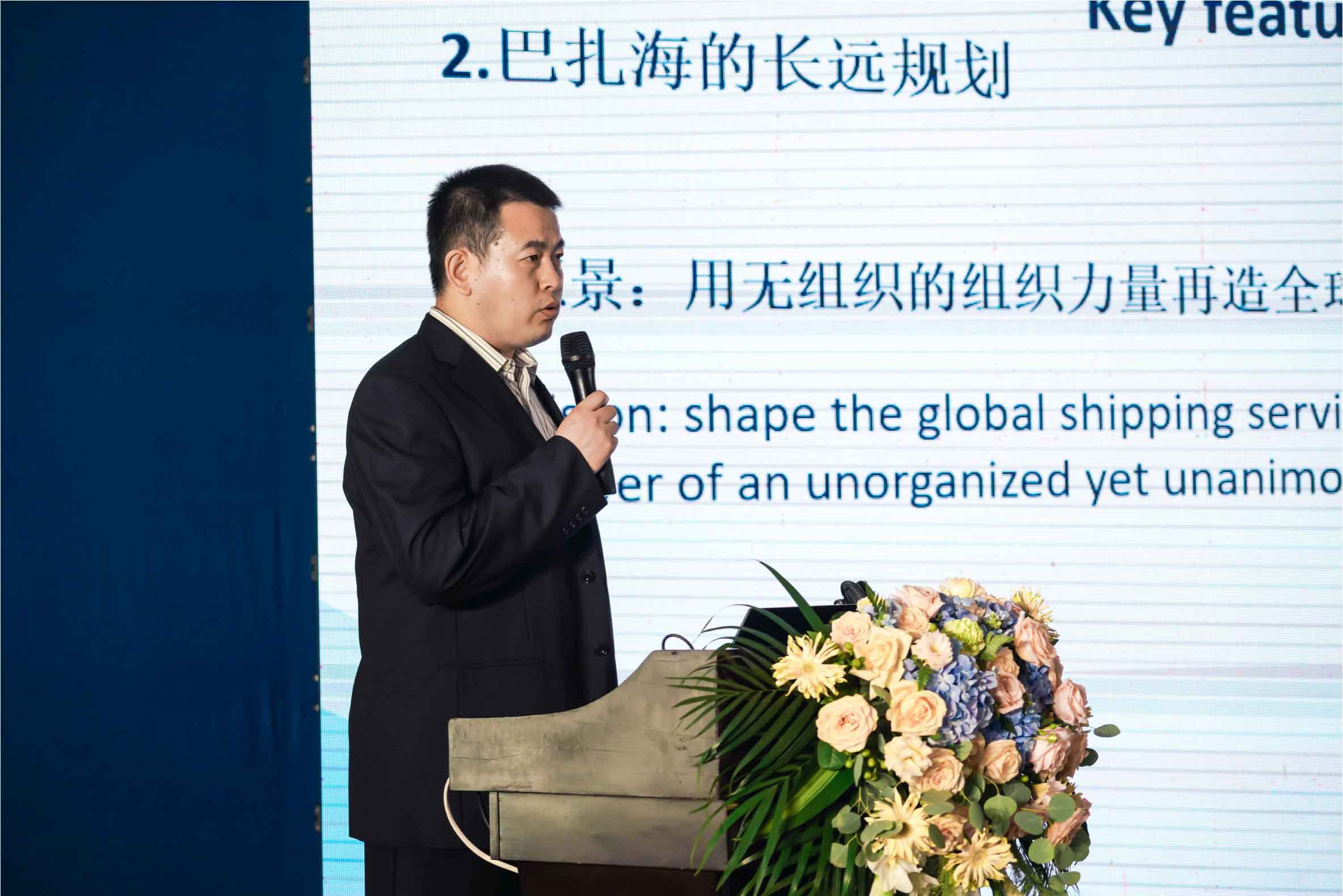
Assistant General Manager of bazarMarine, Mr. Ding Kun introduced the bazarMarine Digital Platform to us, which directly addresses industry pain points, resolves critical issues in the maritime industry, offers customers a fast and accurate matching service, as well as the opportunity to post urgent requirements. The bazarMarine Digital Platform stands out for its simplicity, practicality, transparent information sharing, and unified language. bazarMarine is committed to reshaping the global shipping services market by integrating unorganized forces and establishing a healthier shipping services ecosystem.
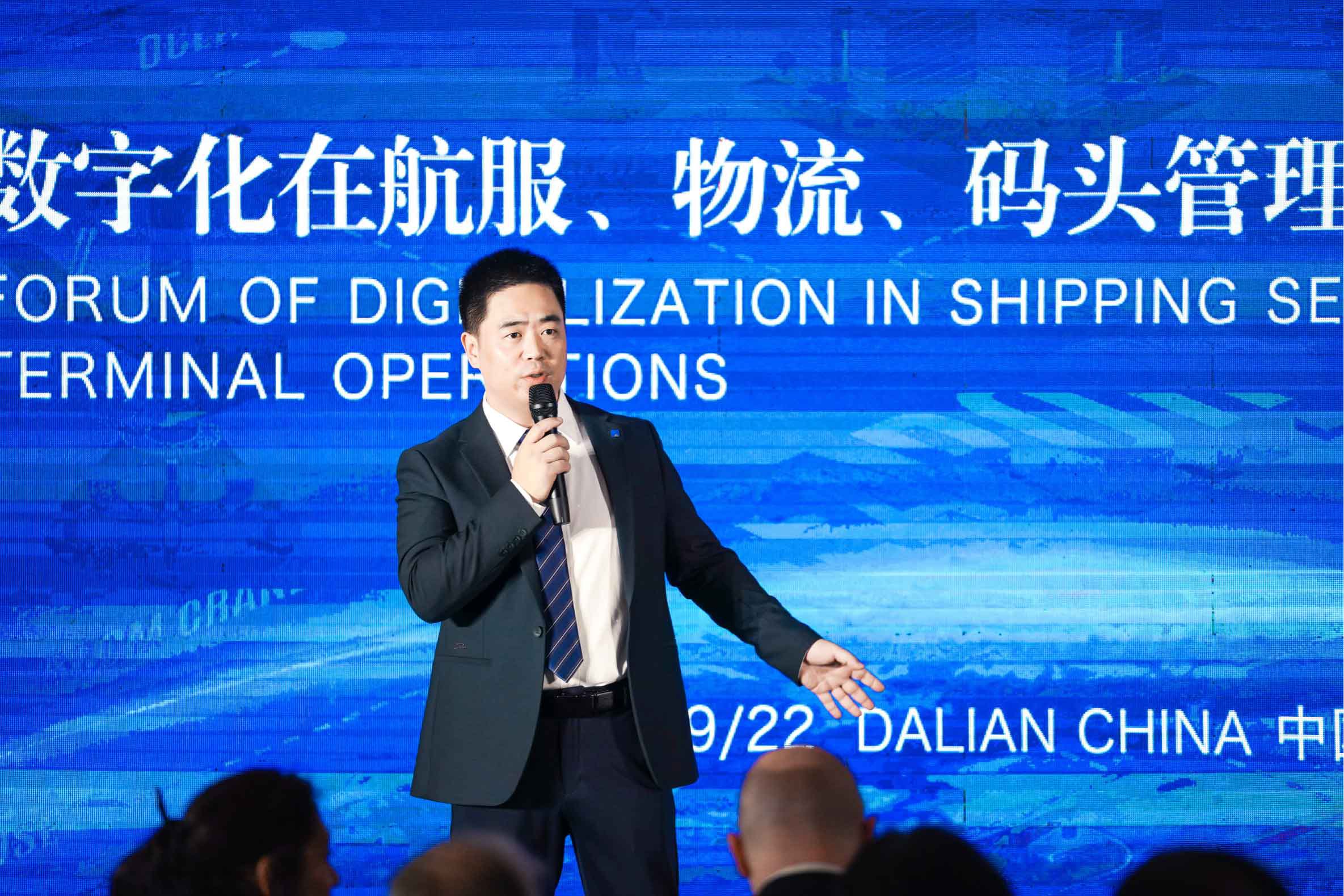
CEO of Oceanfavor Ganglian Information Technology (referred to as HG), Mr. Jin Baoshan took us on a digital journey of HG. Oceanfavor digital transformation encompasses multiple fields, including HR, equipment management, IoT, port management, training, consulting, development and operation. The transformation strategy has achieved the construction of digitalized business scenarios and digitalized delivery scenarios through the development of internal and external digitalization, supply chain digitalization, as well as cost and profit digitalization. Ultimately, it has established a digital operational service ecosystem. The key objectives include improving customer satisfaction, reducing risks, achieving resource sharing and innovation, implementing granular cost management, laying a solid foundation for enabling digitalization and industry collaboration for enterprises.
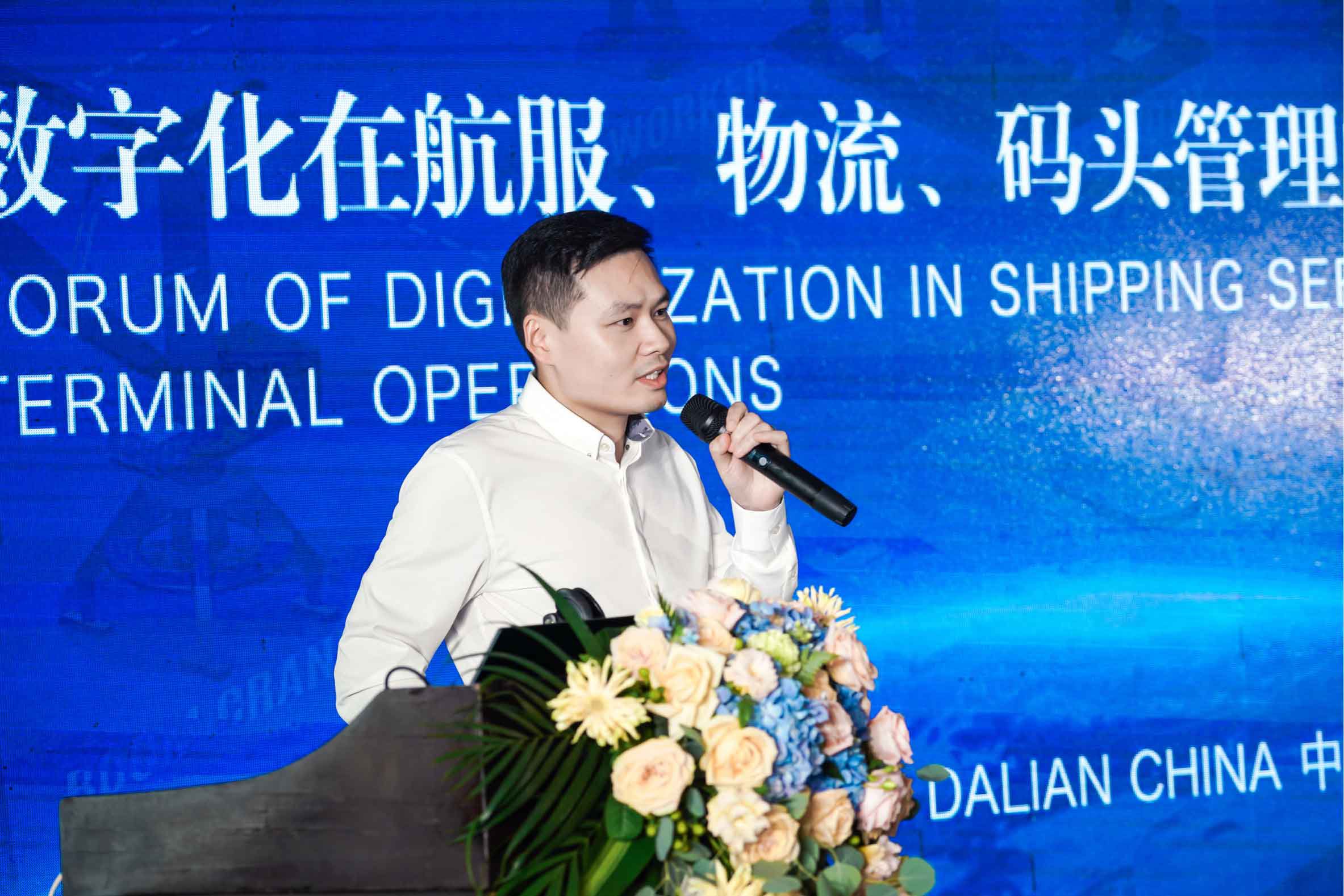
CEO of PenCloud Technology, Mr. Xie Feng introduced the practical applications of AI in international logistics. The utilization of LLM(Large Language Model) has enabled container shipping enterprises to automate the recognition and parsing of weight ticket data, reducing manual entry costs and improving efficiency. In combination with EDI interfaces and RPA tools, it has also achieved end-to-end automation of international logistics freight forwarding processes, including the recognition of various logistics documents, extraction of key information, and document verification. This automated workflow also includes intelligent inquiry and intelligent archiving, providing businesses with higher efficiency and accuracy, reducing operational risks, and optimizing logistics operations.
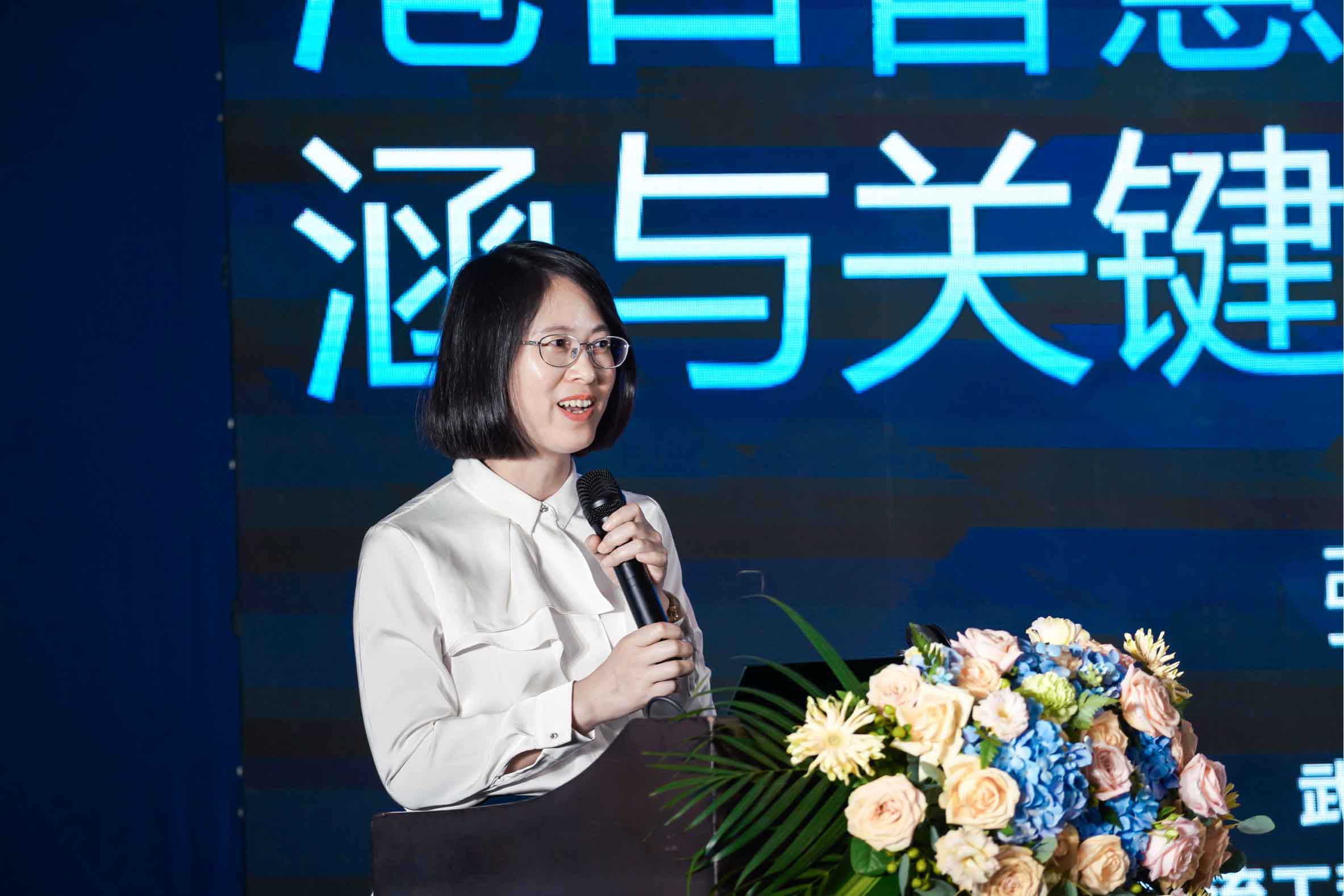
Professor Zhang Yanwei from School of Transportation and Logistics Engineering, Wuhan University of Technology introduced the connotations and key technologies of smart port development. In 2020, China’s seaborne import volume had a significant increase, raising its global market share to 25%, which is poised to shape future trends in global maritime trade. Global seaborne trade continues to occupy a principal position in the global economic trade, providing support for global integration. Smart port is the future trend, using the power of new generation information technology to drive innovation of port operations and management. This approach aims to enhance port intensiveness, efficiency, convenience, safety and sustainability, ultimately contributing to long-term economic and social development. Smart port is not only technological applications, it’s the restructuring of port business models and operations. It represent the intelligent transformation of port logistics systems and will facilitate the efficient operation of the global trade ecosystem.
The digital forum has provided valuable insights and inspiration for the shipping services, integrated logistics, and terminal operation. Participants unanimously agree that digital technology will continue to drive transformation in these fields, bringing about more efficient, sustainable, and intelligent solutions. In the future, the industry will continue to actively respond to digital challenges, constantly seek innovation, and integrate digital technology with sustainability to jointly create a more prosperous future.